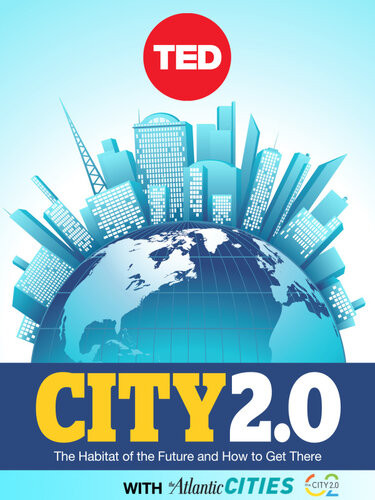

Most ebook files are in PDF format, so you can easily read them using various software such as Foxit Reader or directly on the Google Chrome browser.
Some ebook files are released by publishers in other formats such as .awz, .mobi, .epub, .fb2, etc. You may need to install specific software to read these formats on mobile/PC, such as Calibre.
Please read the tutorial at this link: https://ebookbell.com/faq
We offer FREE conversion to the popular formats you request; however, this may take some time. Therefore, right after payment, please email us, and we will try to provide the service as quickly as possible.
For some exceptional file formats or broken links (if any), please refrain from opening any disputes. Instead, email us first, and we will try to assist within a maximum of 6 hours.
EbookBell Team

5.0
50 reviewsExcerpt From: TED Books. “City 2.0.”
“All over the globe, we are moving to the city.
Sixty years ago only 3 of every 10 people on the planet lived in an urban setting. Today more than half do, and the United Nations projects that by 2050 nearly 7 in 10 people will dwell in cities.
This rapid urban shift is happening while the earth’s population booms. The world’s cities are expected to balloon from 3.6 billion inhabitants today to more than 6 billion by mid-century. Once we mostly dwelled close to the land and our sources of agriculture. Now, collectively, we are being driven to cities to seek work or are simply being seduced by the appeal of urban life.
As a result, we face both a dire emergency and a tremendous opportunity. At their best, our modern cities are hubs of human connection, fountains of creativity, and exemplars of green living. Yet at the same time, they still suffer the symptoms of industrial urbanization: pollution, crowding, crime, social fragmentation, and dehumanization. Now is the time to envision what cities can be and to transform them. We must seize the urgency to make cities models of how humanity can live.
City 2.0 is both a book and a broader initiative that seek the most innovative ideas to answer these questions:
— How can we transform cities to be sustainable, efficient, beautiful, and invigorating to the human soul?
— How can we bring together residents of diverse backgrounds, and empower and uplift the disenfranchised?
— How can[…]”